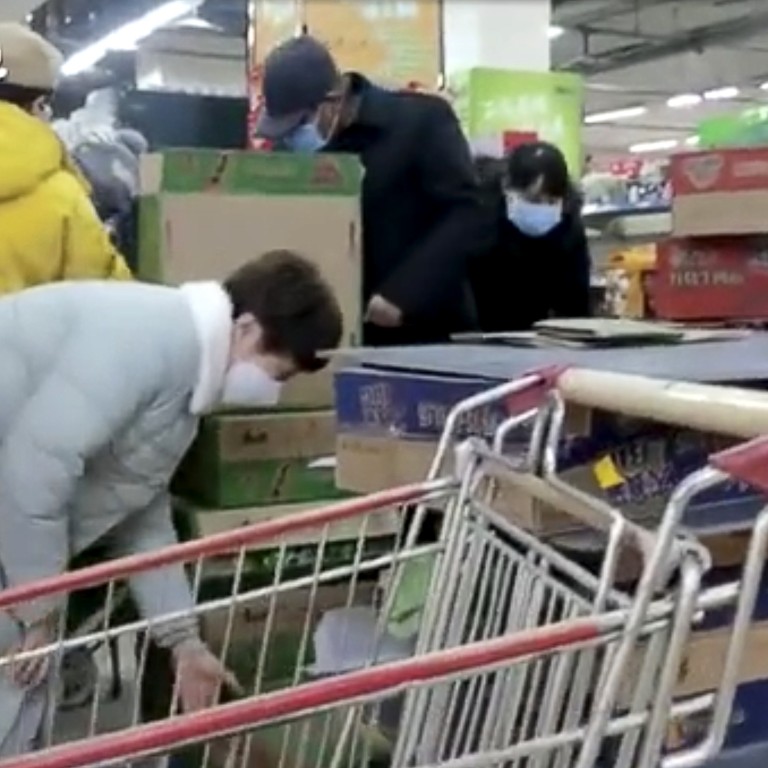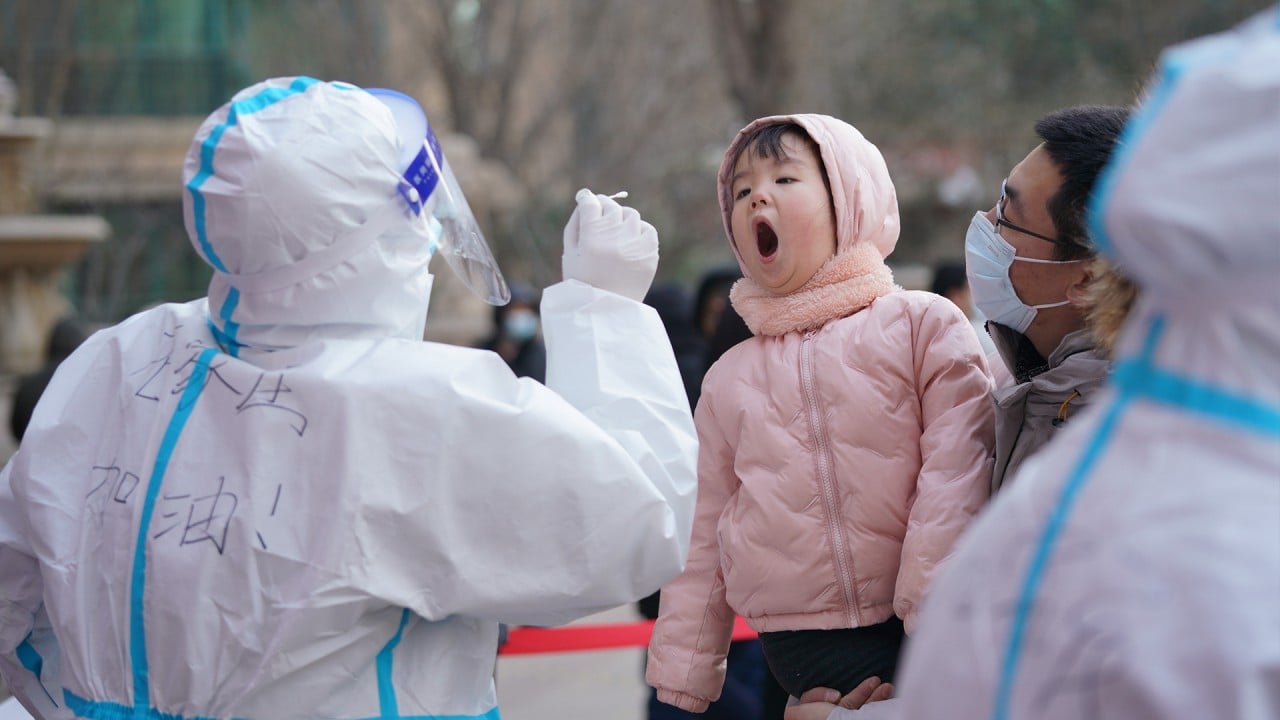
Coronavirus in China: instant noodles a godsend for residents caught out by Shijiazhuang lockdown
- Northern city has seen a spike in Covid-19 cases, and locals have been told to stay home as the entire population of 11 million is tested
- Many locals did not have a chance to get supplies before the restrictions began on Wednesday
The 33-year-old has a clothing business in the northern city in Hebei province, and she wanted to get some orders out while she still could.
“When I woke up [on Wednesday morning] and looked at WeChat, everyone was talking about the lockdown and getting tested,” Wang said, referring to a popular Chinese messaging app.
Concerned that she would soon have to close her business, Wang spent the morning packaging up orders and sent about 100 parcels express to her clients.
When she got home, she was stopped by security at the entrance to her neighbourhood and told that she had to stay home and wait to get tested like everyone else in the city of 11 million people.
She had been so focused on rushing the orders out that she had not thought about food supplies – and by that time the shops had closed.
All she had at home was a bag of flour, a cabbage and a stash of instant noodles.
Wang on Friday said she was making do, but she looked forward to the stay-at-home order being lifted so she could get back to business – and eat something other than instant noodles.

01:50
Coronavirus: Hebei province reports 120 new local cases in China’s biggest Covid-19 rise in months
No one can leave the city, and residents of high-risk district Gaocheng cannot leave the area.
Hebei province reported 33 confirmed cases and 39 asymptomatic cases on Thursday, all but two of them in Shijiazhuang. That brought Hebei’s total in the latest outbreak to 125 confirmed cases and 186 asymptomatic cases as of Thursday, the provincial health commission said.

The lockdown caught out many in Shijiazhuang, including a 41-year-old resident who would only give his surname, Yu. Like Wang, he said the restrictions were imposed so suddenly that he did not have time to go to the shops.
“One of our neighbours had an argument with our gatekeeper because he didn’t have any food at home and wanted to go out and get some [but was barred from doing so],” Yu said.
Several Shijiazhuang residents said it was not clear how they could get essential supplies and they were waiting for information on how to access deliveries.
Yu was lucky – he said his family had enough food at home to last a month.
Coronavirus: Chinese steelmaking hub hit, with highway closures reducing output and delivery
He was allowed to leave his flat on Thursday to get a test, which meant standing outside in freezing weather – the temperature plunged to minus 15 degrees Celsius in the city that day. But he could not go beyond his community compound.
As of Wednesday, some 6.11 million nucleic acid test samples had already been collected from residents of Shijiazhuang. Of the 2.4 million results received so far, 11 new infections have been confirmed, health authorities said on Thursday.
“We’re pretty calm now,” said Yue Guangyu, a 33-year-old resident. “The outbreaks have been mostly in Gaocheng in the north, a suburban area about 30km from the downtown area.
“It’s not like in Wuhan [last year], where there were so many cases in the city that the hospitals were overwhelmed,” he said, referring to the central city where the coronavirus was first detected in 2019.
But businesswoman Wang was concerned about how long the lockdown would continue.
“Winter is the peak season for selling clothes,” she said. “If I can’t sell now, my stock will become outdated and I’ll have to sell it at a loss.”

